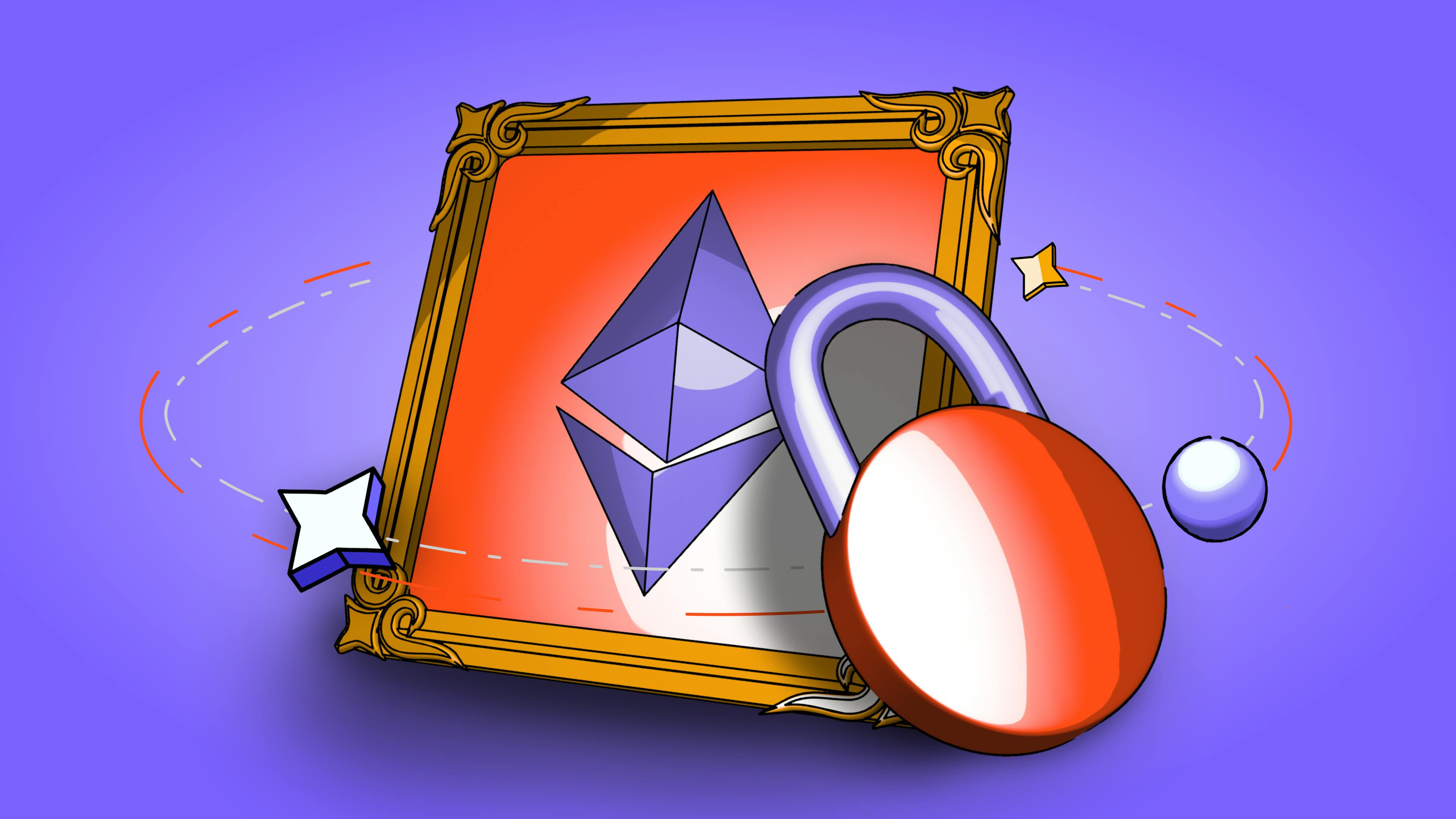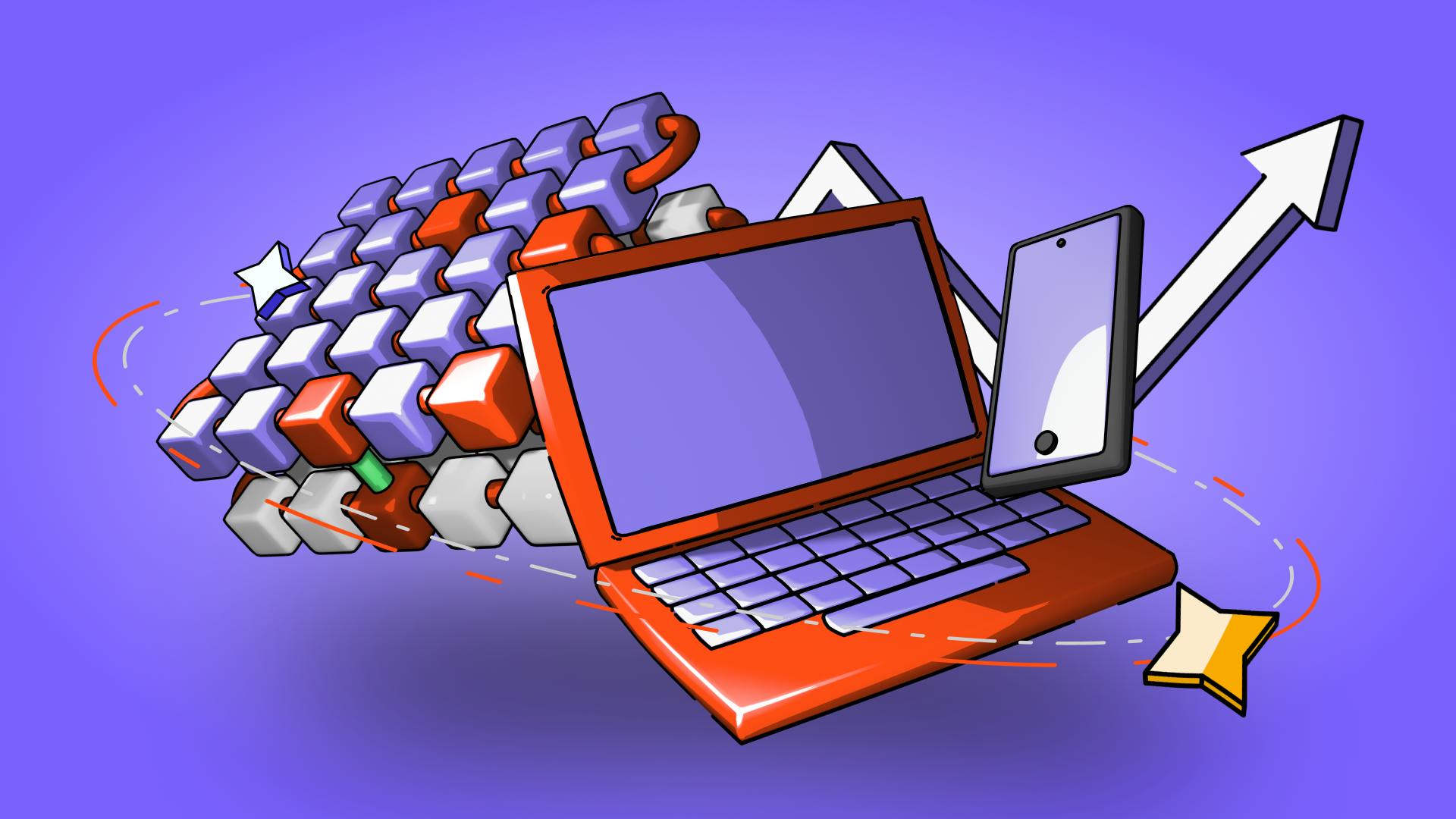Blockchain and Intellectual Property: Effectively Protecting Creations
December 5, 2025

by Coinmetro Editorial Team
December 5, 2025
Blockchain technology, fundamentally, is a decentralized digital ledger that records transactions across multiple computers. This ensures the data cannot be altered retroactively without the alteration of all subsequent blocks and the consensus of the network. Its application spans beyond cryptocurrencies, offering solutions for secure, transparent, and immutable record-keeping.
Intellectual property (IP) protection plays a critical role in encouraging innovation and creativity. It grants creators and inventors exclusive rights to use and profit from their creations, including patents, copyrights, trademarks, and trade secrets. These rights are essential for ensuring that inventors and artists can earn recognition and financial benefits from their inventions and works.
The intersection of blockchain technology and IP protection presents a new approach to safeguarding creations. Blockchain can offer a tamper-proof, transparent, and efficient method for registering and verifying ownership of intellectual property rights. This technology has the potential to streamline the process of securing IP rights, resolving disputes, and ensuring compliance with licensing agreements. By providing a clear and unchangeable record of IP ownership, blockchain technology can significantly aid in the protection and management of intellectual property in a way that was not possible before.
The traditional process of intellectual property (IP) registration is often lengthy and complicated, involving multiple steps and the need for applicants to provide substantial evidence and documentation to prove their claims. This process can vary significantly from one jurisdiction to another, which adds another layer of complexity for IP rights protection on a global scale. The current systems also face challenges in terms of time delays, high costs, and the risk of human error, making the process difficult for creators and inventors.
One of the main challenges in the existing IP systems is their centralized nature, which often leads to inefficiencies and a lack of transparency. Additionally, the verification of the originality of a creation relies heavily on manual processes, increasing the potential for disputes over ownership and infringement.
Blockchain technology offers a solution to these challenges by streamlining the IP registration process. Its decentralized nature allows for a more transparent, secure, and efficient way to register and verify IP rights. Blockchain can provide an immutable record of creation and registration, making it easier to establish and prove ownership and the timeline of invention or creation.
For example, in the realm of trademarks, blockchain can be used to create a tamper-proof record of a trademark's existence, use, and registration process, which can be invaluable in dispute resolution. Similarly, for patents, blockchain platforms can timestamp the submission of innovations, providing an indisputable record of the inventor's claim to the creation at a specific time.
A notable case study is the collaboration between the World Intellectual Property Organization (WIPO) and various blockchain platforms to explore the use of blockchain in managing IP rights and enhancing the efficiency of the patent process. Another example is KodakOne, a blockchain-based platform designed to help photographers manage their digital rights, allowing them to register, track, and license their work more easily.
By integrating blockchain technology into the IP registration process, it is possible to overcome many of the limitations of current systems, offering a more streamlined, cost-effective, and secure way for creators to protect their intellectual property.
Immutability is a cornerstone feature of blockchain technology. It means that once data has been added to the blockchain, it cannot be altered or deleted. This characteristic makes blockchain an excellent tool for providing tamper-proof evidence of creation and ownership, essential for protecting intellectual property (IP).
In the context of copyright and design rights protection, blockchain can significantly impact by offering a secure and unchangeable record of when a piece of work was created and by whom. This not only helps in establishing the originality of the work but also in protecting it against unauthorized use or infringement.
For example, blockchain technology has been used by writers, musicians, and artists to register their works immediately upon creation. By recording a digital fingerprint of their work on the blockchain, they create an immutable evidence of the work's existence at a specific point in time. This can be particularly useful in copyright disputes as it provides a clear and incontrovertible record of ownership.
One real-world application is the use of blockchain by Myco, a platform that allows creators to timestamp their digital art, music, or any digital file, essentially providing a digital certificate of authenticity. Another example is Ascribe, a service that enables artists and creators to register their work on the blockchain, allowing them to track where and how their work is being used online.
Moreover, blockchain is not limited to digital creations. It can also be applied to physical goods and inventions. For instance, Nike has explored using blockchain to verify the authenticity of sneakers, thereby protecting its designs and trademarks.
Smart contracts are self-executing contracts with the terms of the agreement directly written into lines of code. They run on blockchain networks, which means they operate in a decentralized environment without the need for intermediaries. Smart contracts automatically execute transactions when predetermined conditions are met, ensuring a high level of transparency, security, and efficiency.
Smart contracts can be programmed to handle a wide range of IP transactions, including the issuance of licenses, transfer of rights, and distribution of royalties. For instance, a smart contract could automatically release payment to a copyright holder once a licensee uses their work, ensuring timely and fair compensation without the need for manual invoicing and collection.
The automation of IP transactions through smart contracts brings several benefits:
Efficiency: Transactions can be completed much faster compared to traditional processes.
Transparency: Every transaction is recorded on the blockchain, providing a transparent audit trail that can be verified by all parties involved.
Security: The decentralized nature of blockchain and the immutable design of smart contracts reduce the risk of fraud and unauthorized alterations.
Reduced Costs: By eliminating intermediaries and streamlining processes, smart contracts can significantly lower the costs associated with IP transactions and licensing.
Several platforms are already leveraging smart contracts for IP management. For example, music streaming services such as Audius and Ujo Music use blockchain and smart contracts to automate royalty payments to artists, ensuring they are compensated fairly based on actual streaming data. Similarly, digital art platforms enable artists to sell licenses to their work, with smart contracts automatically handling the transfer of rights and funds.
As the technology matures, we can expect to see broader adoption of smart contracts in various fields of IP. This could lead to more dynamic licensing models, greater access to creative works, and enhanced protection for intellectual property rights. The intersection of smart contracts and IP opens up exciting possibilities for creators, businesses, and consumers alike, promising a future where IP transactions are more accessible, transparent, and secure.
Around the globe, countries are progressively integrating blockchain technology to bolster intellectual property (IP) protection, recognizing its potential to revolutionize the field. Here's how some regions are leading the charge:
Europe has been at the forefront, exploring blockchain's application in safeguarding IP rights. The European Union Intellectual Property Office (EUIPO) has undertaken significant research into how blockchain can combat counterfeiting and streamline IP registration and management processes. Initiatives like the "Blockathon" challenge (digitization of processes in the public sector) showcase Europe's commitment to leveraging blockchain for IP protection, encouraging innovation in this field.
India is embracing a futuristic approach by integrating blockchain with artificial intelligence (AI) to create a robust ecosystem for managing IP protection. This initiative aims to simplify the IP registration process, enhance the security of IP rights, and ensure efficient management of IP records, making India a notable player in adopting blockchain for IP.
In the United States, the focus has been on employing blockchain to protect businesses from intellectual property rights (IPR) theft. Through blockchain's transparent and immutable ledger, companies can securely document and timestamp their creations, providing irrefutable evidence of ownership and significantly deterring IPR theft.
Looking ahead, the trend of utilizing blockchain for IP protection is expected to grow, with potential impacts including:
- Global standardization of IP registration and management processes.
- Enhanced cross-border cooperation in IP rights protection and enforcement.
- Increased accessibility for creators worldwide to register and protect their IP efficiently and securely.
By making processes more transparent, secure, and efficient, blockchain is set to fundamentally change the traditional approaches to IP registration, management, and protection. This evolution points towards a more streamlined and universally accessible system for intellectual property rights, potentially transforming the global IP landscape.
This article has shown blockchain's significant potential to transform intellectual property (IP) protection. By integrating this technology, we can address many of the current system's challenges, offering a more secure, transparent, and efficient method for managing IP rights.
Blockchain's role in safeguarding creations and innovations is increasingly important. It provides immutable evidence of creation and ownership, crucial for resolving disputes and preventing unauthorized use. This technology stands as a powerful tool for creators, enabling them to protect their work with confidence.
As more countries explore and adopt blockchain for IP protection, we may see a global shift towards standardized, streamlined processes. This would not only enhance the protection of intellectual property but also foster a more collaborative and innovative environment for creators worldwide.
The journey of blockchain in the realm of intellectual property is just beginning. Its full potential is yet to be realized, but the direction is clear. As blockchain continues to evolve, its impact on IP protection will likely grow, reshaping how we think about and manage intellectual property in the digital age.
Join the Coinmetro community on Discord and Telegram, where forward-thinking traders and investors gather to share insights, explore new opportunities, and dive deep into the world of cryptocurrencies. Should you need any help, feel free to reach out to our world-class Customer Support Team via 24/7 live chat or email at hello@coinmetro.com.
To become a Coinmetro user today, Sign Up now, or head to our new Exchange if you are already registered and experience our premium trading platform.
Tags
Related Articles

Regulatory Sandboxes: Fostering Crypto Innovation Within Legal Frameworks
The cryptocurrency industry’s fast rise fuels an important debate. Innovation aims to transform finance, enhancing speed and access. Yet, regulators…
5m

Crypto Options Trading: Strategies and Market Insights
Cryptocurrency markets have rapidly expanded beyond simple buying and selling. One of the most significant developments has been the rise of…
6m

The Rise of Social-Fi: Blending Social Media with Decentralized Finance
In recent years, social media and finance have started to merge, creating Social-Fi. This concept blends the engagement of social platforms with…
6m

DeFi Insurance Platforms to Watch in 2024
Decentralized Finance (DeFi) insurance addresses the growing need for insurance against hacks, smart contract failures, and other DeFi-related risks.…
7m